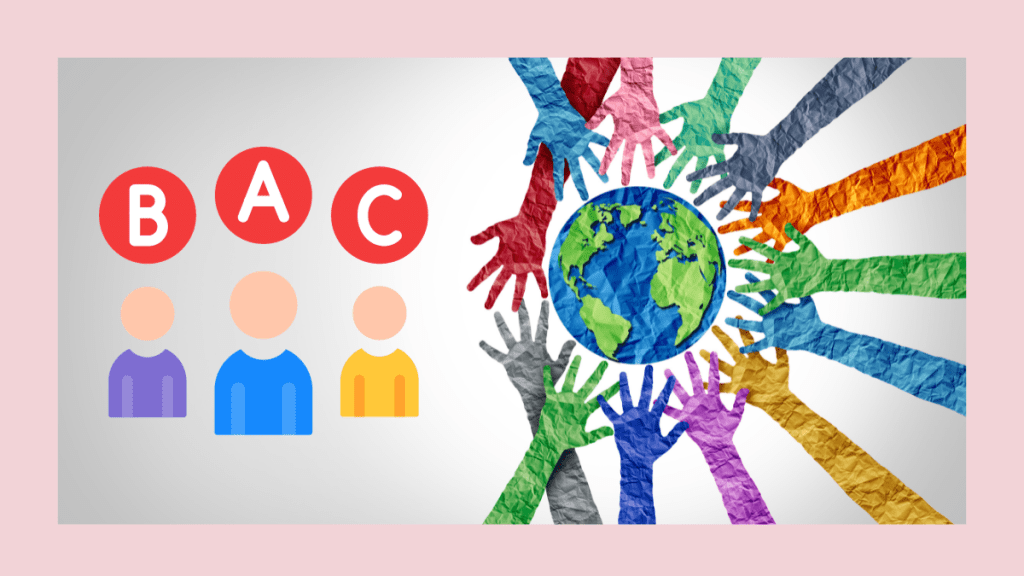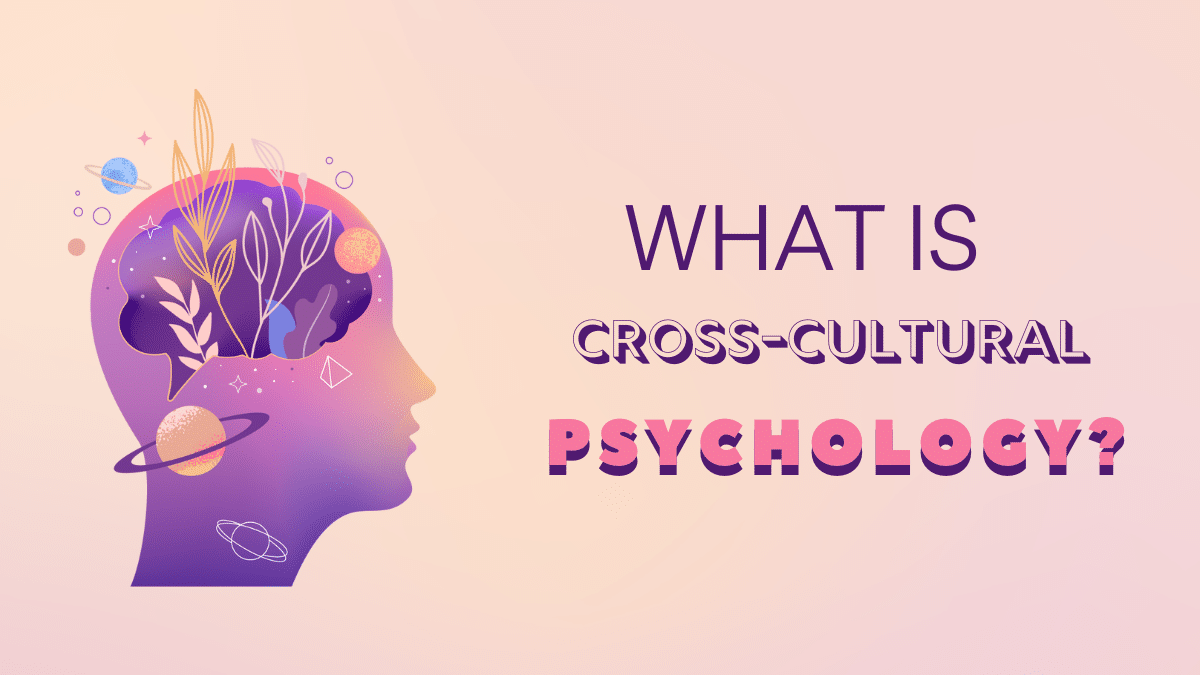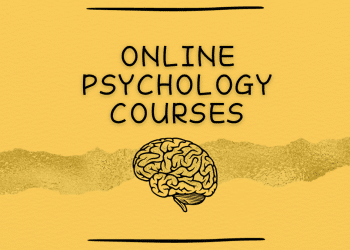Cross-cultural psychology is a part of psychology that looks at how different cultures affect the way people think, feel, and act. It’s like studying how where you’re from can change how you behave and feel. Let’s learn more about cross-cultural psychology in this article.
Cross-cultural psychology explores how culture, including our origin and way of life, shapes our thoughts and emotions. It facilitates understanding the diverse perspectives and behaviors exhibited by people from different cultures.
Cross-cultural psychology examines how individuals in various cultures think and behave, identifying similarities and differences. It aids in comprehending the reasons behind diverse behaviors influenced by cultural backgrounds. Awareness of different cultures enhances our understanding of people’s behavior.
Let’s first understand the nature of cross-cultural psychology before exploring its different types and major goals.
What is cross-cultural psychology?

Cross-cultural psychology is a branch of psychology that examines how our behavior, thoughts, and emotions are shaped by our culture—referring to our origin and way of life. Unlike focusing solely on one specific group, this field of psychology explores diverse cultures. Through comparative analysis, psychologists identify common behaviors and emotions across cultures and discern the differences influenced by people’s backgrounds.
In cross-cultural psychology, psychologists explore the unique beliefs and traditions within various cultures to understand how people from different backgrounds think and behave. This approach ensures that psychological theories and interventions are universally applicable, avoiding cultural bias and fostering inclusivity.
Cross-cultural psychology is crucial for promoting understanding and respect among diverse cultures. This knowledge benefits businesses, healthcare professionals, educators, and leaders by improving communication with people from different backgrounds. For example, understanding how different cultures express emotions or use nonverbal communication can enhance interactions and create inclusive environments where everyone feels respected and valued.
Additionally, cross-cultural psychology helps scientists understand how children develop differently across cultures. Researchers examine parenting styles, educational experiences, and social interactions worldwide. By studying these differences, experts can design more culturally responsive educational programs. It also enables psychologists to understand how culture impacts mental health, allowing therapists to provide more effective and culturally relevant support.
What are the different types of cross-cultural psychology?
Cross-cultural psychology has many parts, and each part helps us learn different things about cultures and people. Just like there are different flavors of ice cream, these types of psychology focus on different aspects of how people from various cultures think, feel, and behave. Each one gives us a special piece of the puzzle to understand our diverse world better.

- Comparative cultural psychology
- Cultural psychology
- Acculturation studies
- Indigenous psychology
- Cross-cultural counseling and therapy
Comparative cultural psychology:
In comparative cultural psychology, scientists examine how people think and feel across the world. They observe commonalities in perception, cognition, and emotions while also noting distinct ways these processes manifest in different cultures. This approach allows them to identify universal traits and culture-specific nuances, enabling a comprehensive understanding of both shared human experiences and unique cultural characteristics.
Cultural psychology:
Cultural psychology examines how your place of origin and beliefs influence your thoughts and emotions. Scientists in this field explore how the ideas, traditions, and symbols in a culture can shape your worldview and upbringing. They investigate how learning from one’s culture and connections to it impact thoughts and how specific symbols or elements influence cognition. Understanding these aspects, cultural psychology enlightens us about diverse global behaviors and thought patterns.
Acculturation studies:
Acculturation studies look at what happens when people from one place meet people from another place and how they change. Scientists in this field study how individuals or groups adapt and blend in with a new culture, or sometimes keep their own ways. They look at how these changes affect how people see themselves, make friends, and feel inside. This helps psychologists and leaders in diverse communities create ways to help everyone get along and understand each other better.
Indigenous psychology:
Indigenous psychology is about learning the special ways different groups of people understand feelings and thoughts based on their own traditions. Scientists in this field work with these communities to understand their traditional healing methods and beliefs about being happy and healthy. By combining this knowledge with regular psychology, they help everyone see that there are many ways to understand our minds and feelings, not just one. This helps us appreciate different cultures and learn from each other.
Cross-cultural counseling and therapy:
Cross-cultural counseling and therapy mean helping people with their feelings and thoughts while understanding their culture. Therapists in this field know that different cultures affect how people see mental health and how they deal with problems. So, they use special ways to talk and understand people based on their culture. This helps every one, no matter where they’re from, get the right support for their mental health.
What are the major goals of cross-cultural psychology?
Cross-cultural psychology helps us understand why people from different places act the way they do. It’s like trying to solve a puzzle to figure out why we all behave differently. Scientists in this field want to learn about these differences so we can understand and respect each other better, no matter where we come from. It’s like learning the special ways people think and feel in different parts of the world.

- Understanding universal aspects of human behavior
- Exploring cultural variations in behavior
- Promoting cultural sensitivity and competence
- Informing public policy and interventions
- Enhancing intercultural communication
Understanding universal aspects of human behavior:
Cross-cultural psychology aims to identify universal traits shared by people regardless of their cultural backgrounds. Scientists analyze individuals from diverse cultures to comprehend common behaviors and emotions. By pinpointing these shared elements, they formulate concepts applicable across cultures. This process involves discovering fundamental principles applicable to everyone, such as universal emotions like laughter and sadness.
Exploring cultural variations in behavior:
Scientists in cross-cultural psychology analyze how individuals from diverse cultures think, feel, and act. They examine how a culture’s beliefs, rules, and traditions shape individuals’ thoughts and behaviors. This understanding enables psychologists to appreciate and respect the varied ways people perceive the world. By comparing behaviors across cultures, they gain insights into how our thoughts and emotions are influenced by our cultural backgrounds.
Promoting cultural sensitivity and competence:
Cross-cultural psychology enables psychologists and researchers to study various cultures and comprehend the emotions and thoughts of individuals from diverse backgrounds. This knowledge enhances their communication skills, enables a better understanding of people’s feelings, and fosters respect for their unique perspectives. This understanding is crucial for establishing positive relationships with individuals from all cultural origins.
Informing public policy and interventions:
Cross-cultural psychology helps people make better plans for schools, healthcare, and communities. By knowing how different cultures affect how people learn or take care of their health, leaders can create programs that work well for everyone. For instance, teachers can use special teaching methods based on how different cultures learn best, and doctors can understand people’s beliefs to give better medical help. This way, everyone, no matter their background, can have fair and helpful services.
Enhancing intercultural communication:
Cross-cultural psychology enables improved communication and understanding between individuals from diverse parts of the world. Scientists analyze variations in speech patterns, body language, and vocabulary across cultures. This knowledge helps prevent confusion, fosters trust, and promotes collaboration among people from different backgrounds. It’s akin to learning multiple languages to facilitate friendship and harmonious cooperation.
What are the theories of cross-cultural psychology?
Cross-cultural psychology has different ideas, like stories in a book. Each idea looks at how people from different places think and feel in its own way. It’s like having different recipes for cookies – they all make cookies, but each one tastes a little bit different. Scientists use these ideas to learn more about people from all around the world.

- Cultural evolution theory
- Ecological theory
- Cultural learning theories
- Cultural syndromes theory
- Cultural neuroscience
Cultural evolution theory:
Cultural evolution theory is like looking at how cultures change, kind of like how fashion or technology changes over time. Scientists who study this theory want to know how the way people think and act changes as their society changes. They look at history and social changes to understand how our beliefs and customs have evolved. It’s like understanding why people start using new gadgets or wearing different clothes, but instead, it’s about understanding how cultures change their ways of thinking and behaving.
Ecological theory:
In cross-cultural psychology, scientists studying ecological theory analyze how people’s behavior and thoughts are influenced by the environments they inhabit. They examine factors like weather, geography, and available resources, observing their impact on cultural norms and individual actions.
This understanding helps explain the diversity in traditions between people from different climates, such as those in hot places having distinct customs from those in cold regions. Studying these factors allows scientists to comprehend the unique behaviors of individuals across the globe.
Cultural learning theories:
Cultural learning theories are about how kids and people learn the ways of their culture from their families and communities. Scientists studying this theory want to understand how kids pick up the rules and customs of their society. It’s like learning how to play a game or a special dance from your family or friends. By understanding how this learning happens, scientists can see how traditions and behaviors are passed down from one generation to another, helping people keep their cultural identity and practices alive.
Cultural syndrome theory:
Cultural syndromes theory is about understanding how people from different cultures behave and feel in special ways. Scientists studying this theory look at unique behaviors, emotions, and thoughts that are specific to certain cultures. It’s like how some families have their own special games or traditions. By knowing these cultural differences, scientists can create ways to help people that respect their unique experiences and feelings, making sure everyone is understood and helped in the best way possible.
Cultural neuroscience:
Cultural neuroscience involves studying how our culture, including language and traditions, impacts our brains and behavior. Scientists from various disciplines collaborate to explore this phenomenon, investigating how cultural experiences shape brain functioning and behavior. This research helps explain why individuals from different places may have distinct thoughts and actions. Through these studies, scientists establish the connection between culture and the brain, enhancing our understanding of human behavior.
What is the scope of cross-cultural psychology?
Cross-cultural psychology is useful in lots of areas. It helps people understand how different cultures think and behave, which is important in many jobs and situations. It helps doctors understand how different cultures view health and illness so they can provide the best care. Basically, it’s like a tool that helps people work together and understand each other better, no matter where they’re from.

- Academic research and education
- Business and organizational settings
- Healthcare and social services
- Policy development and advocacy
- International relations and diplomacy
Academic research and education:
Cross-cultural psychology is a special way of studying how people think and feel in different parts of the world. People who study this help teachers and researchers learn more about how our minds work in various cultures. They add this knowledge to schools so that everyone can understand and respect different ways of thinking. It’s like learning about different flavors of ice cream to appreciate the variety!
Business and organizational settings:
Cross-cultural psychology helps businesses understand how people from different cultures think and act. Companies use this knowledge to sell products in different countries and work well with people from diverse backgrounds. It’s like having a guidebook to understand and respect how people from other cultures do things, making businesses more successful globally!
Healthcare and social services:
Cross-cultural psychology assists specialists and advisors with understanding various societies while they’re helping individuals. It guarantees that clinical and emotional well-being administrations consider an individual’s way of life, making it simpler for everybody to convey and see one another. Along these lines, individuals from all foundations get help, and everybody stays sound and cheerful.
Policy development and advocacy:
Cross-cultural psychology helps people make fair rules and decisions in important areas like school, social services, and human rights. By knowing about different cultures, policymakers can create rules that are fair for everyone. Cross-cultural psychologists also speak up to stop unfair ideas about different cultures and work to make sure everyone is treated equally. Their knowledge helps create rules that respect different cultures, make things fair, and include everyone in society.
International relations and diplomacy:
Cross-cultural psychology helps countries work together better. People who talk to other countries (like diplomats) use this knowledge to understand each other’s cultures. By understanding how different cultures think and feel, they can talk peacefully, solve problems, and make the world a more friendly place. Cross-cultural psychology is like a language that helps different countries become friends and work together.
Conclusion:
Cross-cultural psychology, intertwined with polymath thinking, is a unique way researchers discover how individuals from various societies think and feel. By adopting a multidisciplinary approach, they concentrate on what everybody shares in common and what makes each culture unique. This helps us understand how individuals’ minds work in diverse regions of the world. Researchers utilize this knowledge to respect and appreciate the differences between people.
Cross-cultural psychologists, leveraging polymath thinking, study how different cultures influence behavior and thought processes. This approach helps them comprehend why individuals from different places act the way they do. Some elements are universal, while others vary based on cultural context. By integrating various perspectives, researchers use these insights to learn about both the shared traits and the unique characteristics of each culture.
- “As chicaadmin at The Chicago Weekly, I curate trending national and international news stories with a focus on social justice and cultural impact. My passion for journalism and commitment to independent media are fueled by my Chicago roots and belief in the power of storytelling to connect communities. Follow me on Twitter for insightful commentary and news updates!”










